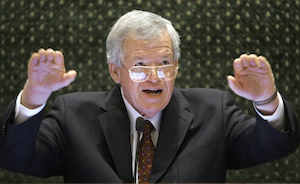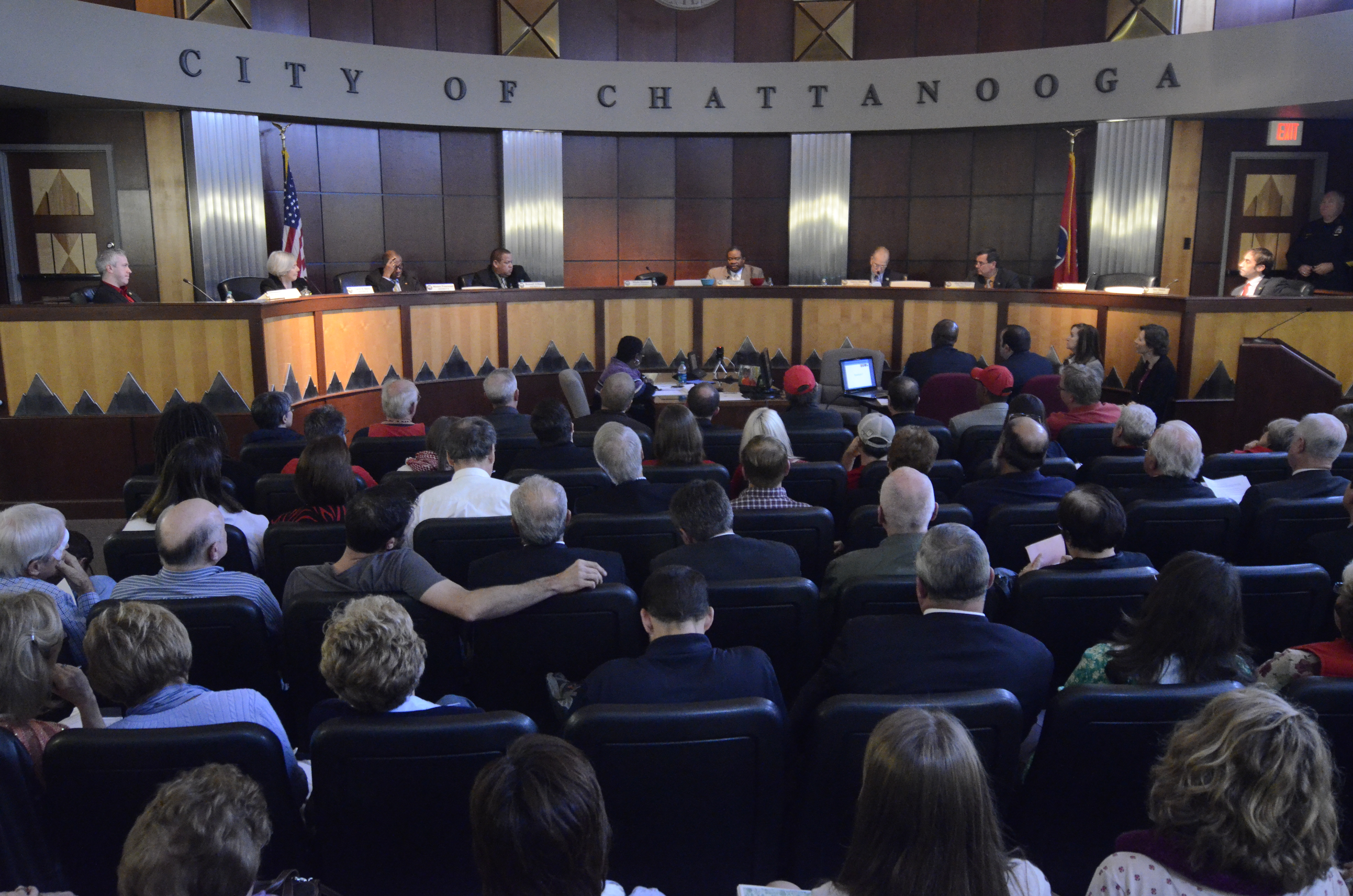IF YOU GO
• What: Chattanooga City Council will vote on the final reading of the proposed domestic partner benefits ordinance• Where: City Council Chambers, 1000 Lindsay St.• When: Today at 6 p.m.
Tonight, Chattanooga could become the third city in Tennessee to offer benefits to employees' gay or unmarried straight partners -- an option that didn't exist for public workers anywhere in the state three months ago.
Those locally opposed to offering benefits to gay and other unmarried couples say this is a back-door effort to circumvent Tennessee's constitutional amendment defining marriage as being between a man and a woman.
Bill sponsor Chris Anderson and other advocates argue that the city isn't redefining the state constitution's definition of marriage with this ordinance. This bill is about equality for all city employees and their families, they say.
But a national expert says that in states that have constitutional protections for traditional marriage, the gay rights movement is advancing through local governments.
"A number of cities are doing for their employees what the states won't do," said Jack Tweedie, senior fellow at the National Conference of State Legislatures. "It's rather different than legalizing same-sex marriage, but it's a step in the same direction."
In fact, the legalization of gay marriage in the first states in the union came after cities within those states first approved domestic partner benefits. And to date, more than half of all states that have legalized same-sex marriage have first had cities or counties that approved domestic partner benefits, according to the Human Rights Campaign, a Washington, D.C.-based LGBT-rights group.
Berkeley, Calif.; Cambridge, Mass.; and New York, N.Y., started offering domestic partner benefits in the 1990s. Other cities in those states came on board in succeeding years.
A landmark 2003 court decision allowed Massachusetts to become the first state to legalize gay marriage the following year. California and New York followed a few years later. California resumed recognizing gay marriage this year after the U.S. Supreme Court dismissed an appeal. In doing so, the court sidestepped the issue of whether states should be allowed to define marriage to exclude gay couples.
Hawaii became the 15th state to vote to legalize gay marriage just last week. That move came two years after the state legalized civil unions between same-sex couples.
On Wednesday, Illinois is poised to become the 16th state to legalize same-sex marriage, but Tweedie said this movement eventually will come to a halt.
In the nine years since Massachusetts decided to legalize gay marriage, a number of states, including Tennessee, have amended their constitutions by popular vote to sanction traditional marriage.
Twenty-eight other states now have similar constitutional amendments, which Tweedie said means the battle to legalize gay marriage will eventually have to move from state houses into the courtroom.
That means the gay rights movement could slow state-wide, but cities may ramp up efforts to recognize gay couples through domestic partner benefits even though their unions aren't recognized by the state, he said.
The Human Rights Campaign tracks how many cities and counties across the country have approved benefits for domestic partners. Their numbers show that at least eight Republican-leaning states have one or more cities or counties that provide benefits to employees' domestic partners.
Since the group's list was last updated in July, Tennessee has become the ninth Republican stronghold state where cities offer such benefits.
The group also documented that at least nine states that have legalized same-sex marriage had cities or counties that first offered benefits to domestic partners.
Anderson, the first openly gay council member in Tennessee, said his research didn't show that domestic partner benefits approved by a city government ultimately led to the approval of same-sex marriage. He said approving domestic partner benefits is the right choice because it gives equal rights to both gay and heterosexual couples in long-term relationships.
"It's an equal rights movement," he said. "My ordinance is gender neutral and treats all families the same."
Chris Sanders, director of the Tennessee Equality Project, a group dedicated to promoting equality for LGBT people, agrees that the battle to legalize gay marriage will have to happen in a courtroom, explaining that Republican lawmakers are too socially conservative to take up the issue.
Sanders pointed to a lawsuit filed in October by four same-sex couples living in Tennessee but who were married in states where same-sex unions are legal. Their suit asks Nashville's federal district court to find that the state law violates the couples' federal constitutional rights to equal protection.
Tennessee House Majority Leader Gerald McCormick, R-Chattanooga, said that unless a court overturns the state constitution, he doesn't foresee anything happening in the General Assembly about marriage for same-sex couples because the definition of marriage is clearly spelled out in the Constitution.
Mark West, the local Tea Party president who is pursuing a petition to force the Chattanooga City Council to either repeal the ordinance or put it to a referendum vote, said he thinks domestic partner benefits is just a way to push gay rights forward in a conservative state.
That's why the local pushback is so strong, he said.
"It's really just about LGBT benefits, but they're forced to include this other group [heterosexual couples] because their hypocrisy was discovered in Collegedale," West said.
Earlier this year, Collegedale police Detective Kat Cooper was denied the right to give her partner Krista her health benefits, which prompted Cooper to go to her City Commission to ask for an ordinance change.
In August, the commission first voted 4-1 to expand benefits to same-sex couples. Former state legislator David Fowler, who is also president of the Family Action Council of Tennessee, then criticized the bill and said it discriminated against straight, unmarried couples. The commission decided instead to create domestic partner benefits.
In October, Knoxville Mayor Madeline Rogero signed an executive order offering domestic partner benefits. Then last week, Anderson introduced Chattanooga's bill.
The ordinance passed a 5-4 vote on its first reading. The council is scheduled to have a final reading and vote on the proposed ordinance tonight.
Contact staff writer Joy Lukachick at jlukachick@timesfreepress.com or 423-757-6659.


